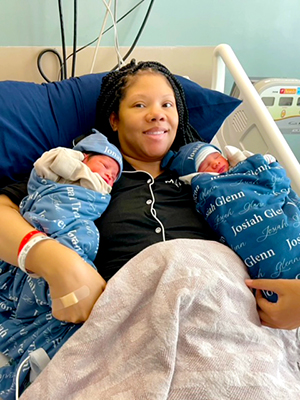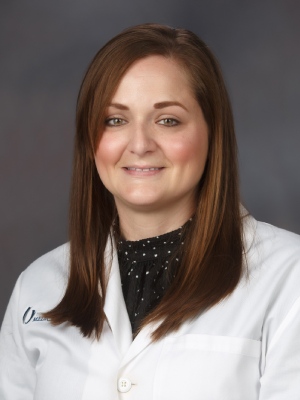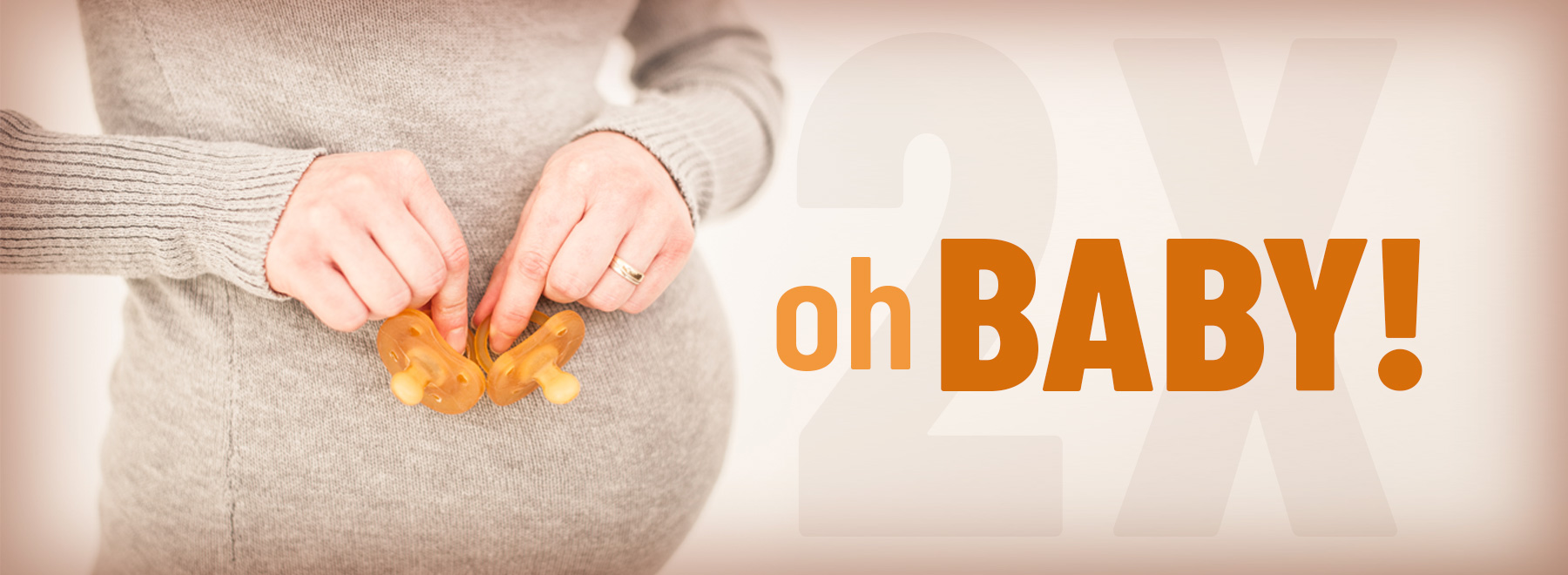Genetic counselors offer answers to parents of multiples
Jewel Broadway, a registered nurse at the University of Mississippi Medical Center, recently gave birth to her second set of twins. Although twins run in her family, Broadway said it still came as a shock that she was pregnant with twins for a second time.
"My grandmother gave birth to twins, a boy—my father—and a girl who passed away very young. Then my sister ended up having twins and so did I,” said Broadway.

Research suggests that in some families, twins may appear to "skip a generation" due to genetic factors causing hyperovulation, which can result in having dizygotic (fraternal) twins. This phenomenon is as an illusion known as a sex-limited trait or observation, as heredity doubles the chances of conceiving twins but only through the mother's lineage.
It's important to note that only dizygotic twins run in families. This means that if there's a history of twins in your family, it's more likely that you'll have fraternal twins yourself. Identical twins, on the other hand, occur randomly and do not appear to be influenced by family history or genetics.”

"The most common kind of twins are dizygotic.” said Laura Hendon, certified perinatal genetic counselor. Dizygotic twins are like any other full siblings- they share about half of their genetic information- what’s unique is they also share the same womb, like roommates. These twins can run in families and are more common in certain ethnic groups, with non-Hispanic Black or African American individuals having the highest rates, followed by non-Hispanic white and Hispanic individuals.”
Although there is nothing inherent to twin pregnancies that causes genetic conditions to occur, Hendon said that the odds of having a baby with chromosome conditions such as Down Syndrome or trisomy 18 and trisomy 13 increase when carrying multiples.
“Everybody has some chance to have a baby with a chromosome condition and this risk increases with maternal age,” she said. “But as a mother of twins is carrying more people in there, her statistical risk is higher due to the compounding of individual risks. However, determining the risks for chromosome conditions becomes fuzzy when dealing with higher-order multiples (three or more babies). There is limited evidence in these cases since they occur less often.”
Prenatal genetic screenings and tests can help predict or determine, respectively, whether one or both babies will be born with a chromosomal abnormality.
“Tests are diagnostic, providing a yes or no answer with nearly 100% certainty,” Hendon explained. “The gold standard for diagnostic testing is amniocentesis, which is done around 18 weeks or later,” said Hendon. “Another test is chorionic villus sampling, which is the first trimester equivalent of amniocentesis. The main difference between to the two is an amniocentesis uses a needle to remove a small amount of amniotic fluid that surrounds the pregnancy, while CVS is a transvaginal aspiration of placental tissue.”
On the other hand, genetic screens such as serum screens and non-invasive prenatal screening are noninvasive and pose no risk to the pregnancy. While serum screens measure hormone patterns, NIPS reads placental chromosome fragments that have entered the mother’s blood stream. While NIPS is the most accurate screen currently available to assess for chromosome conditions in pregnancy, it is still not as good as amniocentesis. Therefore, patients can face challenges when trying to decide between these two options in pregnancy.
“One of the key things people misunderstand about genetics and genetic counseling is that we tell people what to do,” Hendon said. “We absolutely do not. We tell them the information; we share what's known, and then we learn about them and gauge what is important to them. So sometimes I sit down with women, and they say ‘I'm worried. I want to know. I've got to know.’ Those are the women who might pursue testing.” On the other hand, some couples are completely comfortable waiting until delivery to find out this information. We fully support that.
Hendon believes everyone, regardless of age or background, should be offered prenatal genetic screening, as it is important for every pregnant person to know all of their options.
“We offer everything to twin gestations. Serum screening and NIPS is approved for use in twin pregnancies, but when you have three or more babies, almost all bets are off the table. It's not wrong for a woman carrying higher order multiples to pursue some of those screens. We just can't tell you it is going to be accurate. Because when you've got four babies in one uterus, and you're measuring hormone patterns, if you just divide by four, is that accurate? Or if you're looking at placental DNA, and you have four babies, is that representative of all four if they're not identical?
“But the great thing about genetic counseling is if you’re informed of the risks, benefits and limitations, and you want to take that on, we're here to support you,” she said.
To schedule an appointment with a prenatal genetic counselor, call 601-984-1900 or visit www.umc.edu/Healthcare/Make-An-Appointment.
The above article appears in CONSULT, UMMC’s monthly e-newsletter sharing news about cutting-edge clinical and health science education advances and innovative biomedical research at the Medical Center and giving you tips and suggestions on how you and the people you love can live a healthier life. Click here and enter your email address to receive CONSULT free of charge. You may cancel at any time.



